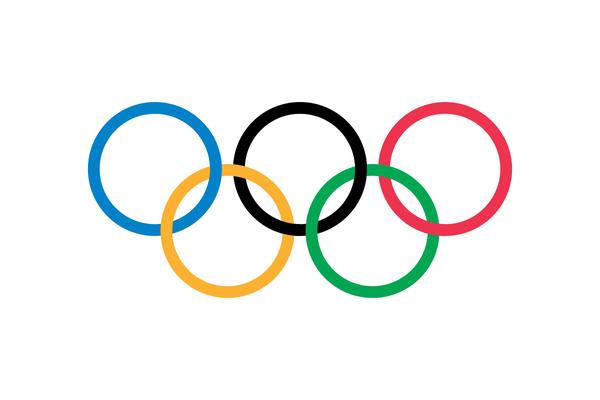
Special for Infobae from The New York Times.
At the bottom of the slope where snowboarders will compete in the 2022 Winter Olympics in Beijing, an electronic billboard displays ad cycles from companies like Samsung and Audi. Coca-Cola cans are decorated with the Olympic rings. Procter & Gamble has opened a beauty salon in the Olympic village. Visa is the official credit card of the event.
US President Joe Biden and a handful of Western leaders have declared a “diplomatic boycott” of the Winter Olympics, due to begin next week; even so, some of the most famous brands in the world will be there.
The prominence of these transnational companies, many of them American, has detracted from the political force of efforts by Biden and other leaders to sanction China for its human rights abuses, including a crackdown in western China. Xinjiang that the US State Department has declared a genocide.
The Olympic sponsorship reflects the dilemma facing transnational companies operating in the country: risk access to an increasingly maudlin China or deal with the reputational risk associated with doing business in the Asian nation. When it comes to the Beijing Olympics, the choice has been clear.
Though the sponsors have been the target of protests from human rights activists in several countries, they have largely ignored them, opting instead to keep China and its emerging class of nationalist consumers happy.
The companies argue that the Olympics are not political and have invested hundreds of millions of dollars in deals that span multiple Olympics, not just the one in Beijing. Collectively, the thirteen major Olympic sponsors have contracts with the International Olympic Committee (IOC) totaling more than $1 billion.
“It seems like everything is normal,” said Mandie McKeown, executive director of the International Tibet Network, a coalition that has helped organize protests by more than 200 rights groups calling for a boycott of Tibet. the Olympic Games. "It's literally like they buried their head in the sand."

For companies, however, the risk of angering Chinese consumers by criticizing their country's policies is high. Armies of patriotic voices on Chinese social media have forcefully denounced foreign brands for perceived slights, criticism often amplified by the government and state-run media.
Adidas, Nike and other clothing companies faced boycotts across China after raising concerns about reports of forced labor in Xinjiang, the region where the Communist Party has detained millions of Uyghurs en masse and re-educated them in re-education camps. Muslims. When fashion retailer H&M promised to stop buying cotton from Xinjiang, a boycott by Chinese consumers cost it about $74 million in lost sales during a quarter.
Even Intel, a major Olympic sponsor, faced backlash last month after the company published a letter calling on international suppliers to avoid buying products from Xinjiang. In the face of fury, Intel rewrote the letter a few days later to remove the reference to Xinjiang.
Only four major sponsors -- Omega, Intel, Airbnb and Procter & Gamble -- responded to requests for comment. Omega, the official timekeeping firm and data administrator of the Olympic Games, mentioned that since its partnership with the Olympic Games began in 1932, “it has been our policy not to get involved in certain political issues because it would not advance the cause of sport. on which our commitment lies.”
Airbnb and Procter & Gamble said they were focused on individual athletes and emphasized their commitment to the entire Olympics rather than specifically Beijing. An Intel representative commented that the company would "continue to ensure that our global sourcing complies with applicable laws and regulations in the United States and in the other jurisdictions in which we operate."
“Skiing and sports should be kept out of politics,” said Justin Downes, president of Axis Leisure Management, a hospitality company and contractor that works with the Canadian Olympic Committee and others to help with logistics and the supplies.
Nearly all Olympic sponsors have codes of ethics or corporate social responsibility commitments to honor human rights, but these games have tested how far they are willing to go to speak out against violations recognized by various entities.
In China, those violations have included a heavy hand in Xinjiang, as well as the continued crackdown on Tibet, the erosion of political freedoms in Hong Kong and threats to assert China's territorial claim to Taiwan.
Among the largest Olympic sponsors, only Allianz is known to have met with activists calling for a boycott of the games. But the company has not said anything about it. A protest last week outside his offices in Berlin brought together just seven people.
Many major sponsors seem to be hoping the Olympics will pass without them attracting much attention.
Activists say sponsors and the IOC have the financial power to influence the Chinese authorities, but are afraid to use it.
“If any other government in the world did what the Chinese are doing in Xinjiang or even Hong Kong, a lot of companies would just leave the country,” said Michael Posner, a former State Department official who now works at the New York University Stern School of Business.
Posner recalled decisions by companies to pull out of places like Burma and Ethiopia, as well as campaigns to boycott South Africa when the apartheid-era government sent all-white teams to the Olympics .
“China is an exception,” he said. "It's so big, both in terms of the market and being a manufacturing giant, that companies feel like they can't afford to be in the government's crosshairs, so they just keep their mouths shut."